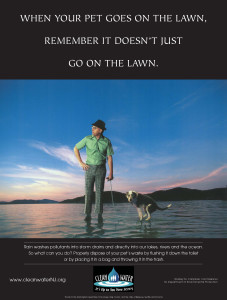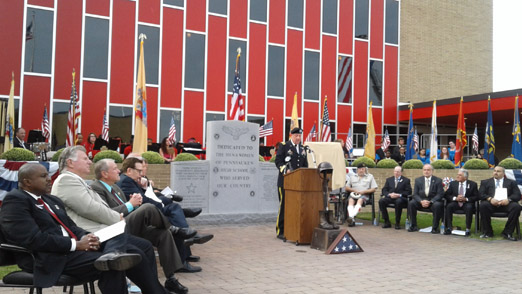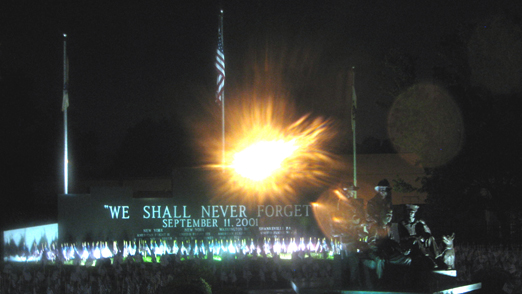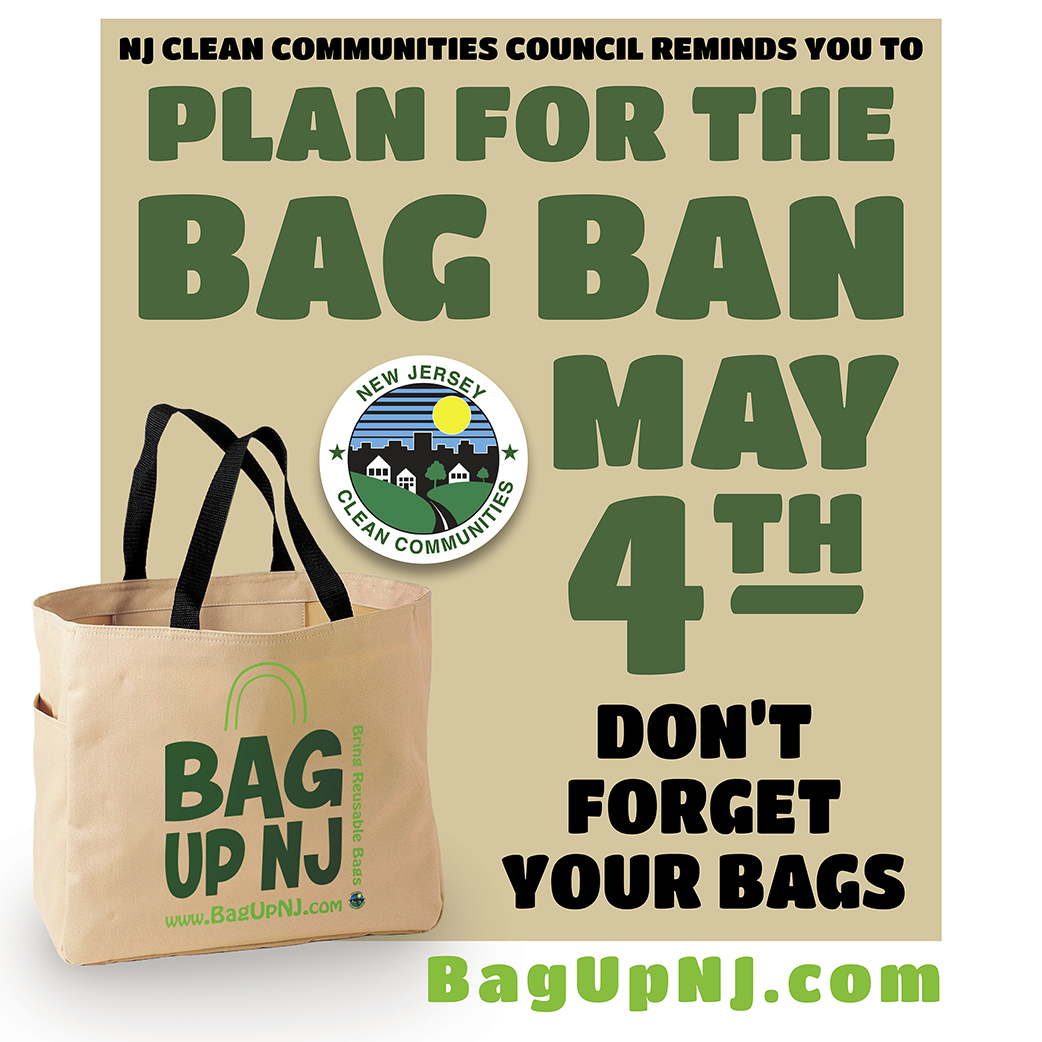An Open Letter From Mayor Taylor To The Residents And Businesses Of Pennsauken Township
Township Ordinances in Place to Minimize Pollution of Creeks and Rivers
 By Rick Taylor, Mayor of Pennsauken Township
By Rick Taylor, Mayor of Pennsauken Township
We have a new addition to the family, and no, I’m not talking about another grandchild to spoil. Bernice and I got a dog, a cute, little Havanese named Weeko. And like many of you, aside from the impromptu snow we got on the first day of spring, the warmer weather is going to make it a lot easier to take Weeko out for walks.
But whether it’s warm or cold outside, there’s one part of dog walking that doesn’t change: bringing that plastic bag along to pick up the “deposits” that Weeko makes along the way. It’s not fun for anyone, but it makes sure that no one has to leave their shoes outside their front door, if you catch my drift.
 Picking up after your dog also goes a long way to help the environment, particularly when it rains. The New Jersey Department of Environmental Protection has determined that stormwater runoff is the largest source of water pollution impacting our creeks and rivers. Rainwater that flows down storm drains carries with it anything that is dropped, dumped, blown, or swept into the street. That means items such as pet waste, grass, leaves, oil, fertilizers, and all types of trash and litter that’s left lying around will eventually be washed down a storm drain and into one of the creeks and rivers throughout the Township.
Picking up after your dog also goes a long way to help the environment, particularly when it rains. The New Jersey Department of Environmental Protection has determined that stormwater runoff is the largest source of water pollution impacting our creeks and rivers. Rainwater that flows down storm drains carries with it anything that is dropped, dumped, blown, or swept into the street. That means items such as pet waste, grass, leaves, oil, fertilizers, and all types of trash and litter that’s left lying around will eventually be washed down a storm drain and into one of the creeks and rivers throughout the Township.
The pollution of our waterways is a serious issue; and it’s not just the trash and debris that you find floating along the current. There’s much more that you can’t see with the naked eye that can degrade water quality and harm local marine life. That’s why every year, The New Jersey Department of Environmental Protection enlists the help of municipalities throughout the state to remind residents and businesses of the importance of protecting our creeks and rivers.
How Pennsauken Battles Stormwater Pollution
As I mentioned, a responsibility of pet ownership is picking up after them when they go out back, when you take them for walks, or you go for a ride to Pennsauken’s “Bow Wow” dog park. Pennsauken has an ordinance in place that requires you to properly dispose of pet waste in the trash. This is just common sense. Plus your neighbors, and their shoes, will appreciate the effort.
But it’s not just about picking up after your dog. We all know about the geese that have decided to make Pennsauken a rest stop during their annual migrations. And they certainly leave a mess behind wherever they go. When washed into a waterway, geese droppings are another source of water pollution. And whether you employ border collies, cutouts of dogs, air canons and the like, it still remains very difficult to get these geese to migrate somewhere other than Pennsauken. That’s why the Township has adopted an ordinance making it illegal to feed them on public property.
The Township also has adopted several ordinances intended to stop pollutants from going down the drain in the first place. For example, Pennsauken has had a litter ordinance on the books for many years. It is illegal to dump or drop litter of any kind on public or private property. Stormwater pollution aside, not littering is simply essential for the appearance of the Township and the quality of life of its residents. Too often, we see motorists dump all sorts of trash into the street. Not only is it disgusting, it’s against the law.
Since trash creates serious problems when washed down an inlet, an ordinance was adopted that requires dumpsters and other trash containers to be covered at all times. This not only stops trash from blowing into the street, but also helps keeps liquids from leaching out and getting washed into the storm sewers. We ask Pennsauken businesses to be especially diligent to keep their dumpsters covered and to avoid overfilling them with too much trash.
Pennsauken’s ordinance on improperly disposing of waste materials prohibits anything other than rainwater from going into an inlet. Dumping oil or other unwanted household chemicals into a storm inlet is not only dangerous but also deadly to marine life. Please take advantage of the hazardous waste disposal days that the County has during the year. Many times, they occur right at Pennsauken’s sanitary landfill on River Rd., allowing you to quickly and easily dispose of your hazardous materials in a proper fashion.
Remember, pollutants can also be grass, leaves and fertilizers. While some think of these as “organic,” they are in fact pollutants to clean water and a danger to aquatic life. In addition, too many leaves raked down a storm inlet can also cause the sewer to clog and possibly result in flooding. Only rainwater should go down a storm drain.
The ordinances mentioned are intended to remind residents and businesses of the need to stop waterway pollution at the source. In addition, the NJDEP has directed municipalities to start using the new eco-style inlets. Pennsauken has many of these already in place. The openings are purposely small enough to stop large debris, such as plastic bottles and soda cans from being washed into the storm sewer, but still allow rainwater to pass through.
In addition to the Township retrofitting the new eco-style inlets, businesses are also required by ordinance to retrofit storm inlets whenever a parking lot needs to be repaved or seal coated of a parking area is done.
Pennsauken Township’s Highway Department inspects inlets every year and cleans those blocked by debris. However, with approximately 1,400 inlets throughout the Township, the Highway Department cannot always get to them immediately. Cleaning off a storm inlet and placing the debris in a trash container is a way that Pennsauken residents can help keep the environment clean. This is particularly important in neighborhoods that are prone to street flooding in a heavy rain.
The ordinances discussed in this article can be found on our Township website (www.twp.pennsauken.nj.us) in the Government/Codebook section. Specific requirements are included in Chapters 101, Animals; Chapter 197, Litter; Chapter 256, Sewers and Drainage Systems; and Chapter 269, Solid Waste. While it is important to be aware of the ordinances that the Township has adopted to protect our waterways, it is really up to each one of us to take responsibility for keeping the environment clean. Everyone, whether they are a longtime resident, or a brand new business owner moving into town, has the ability to help in some small way.



